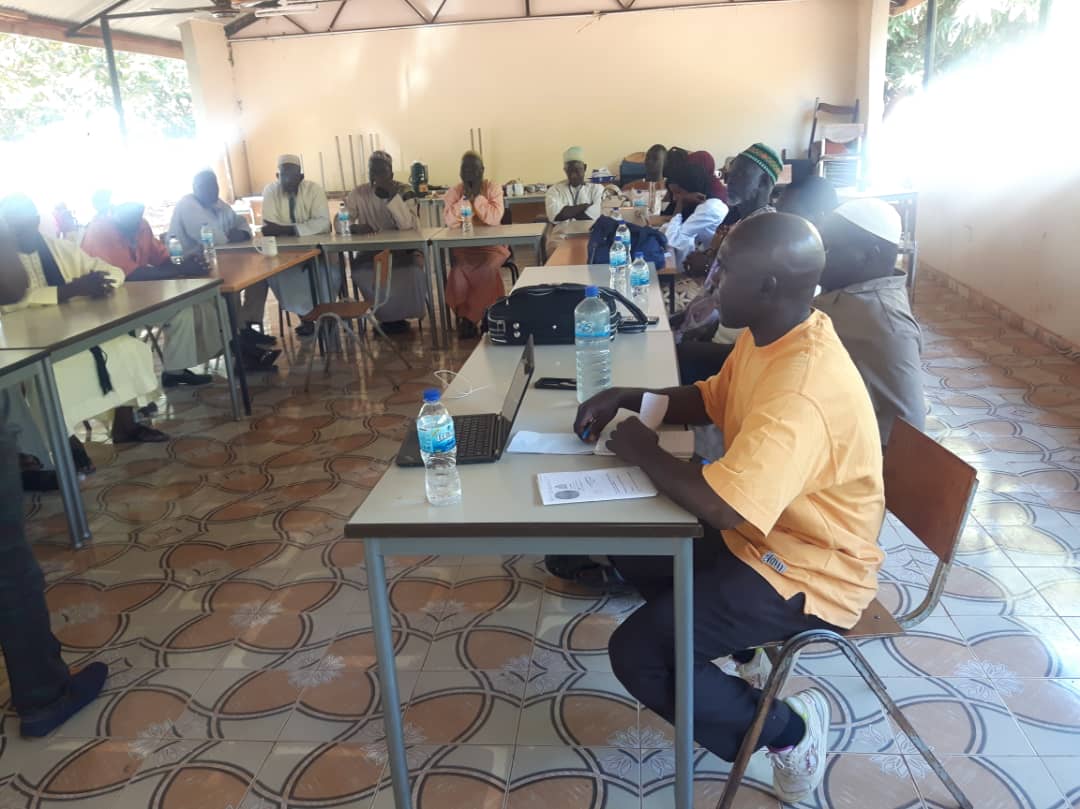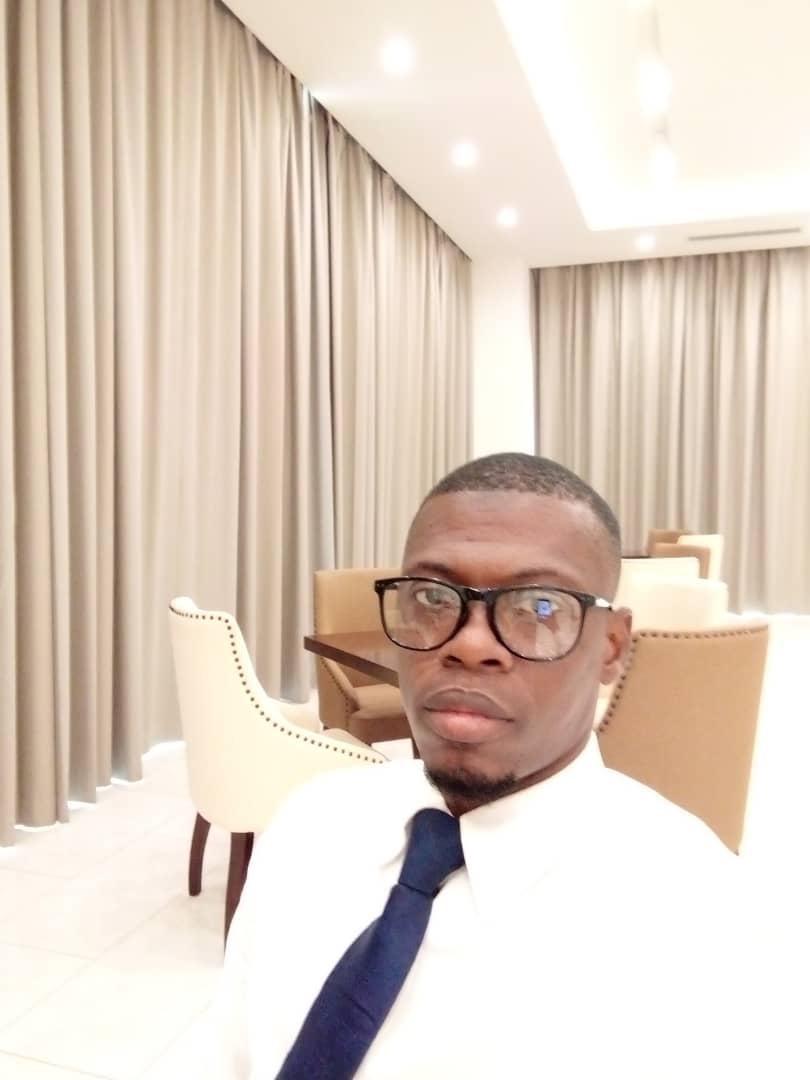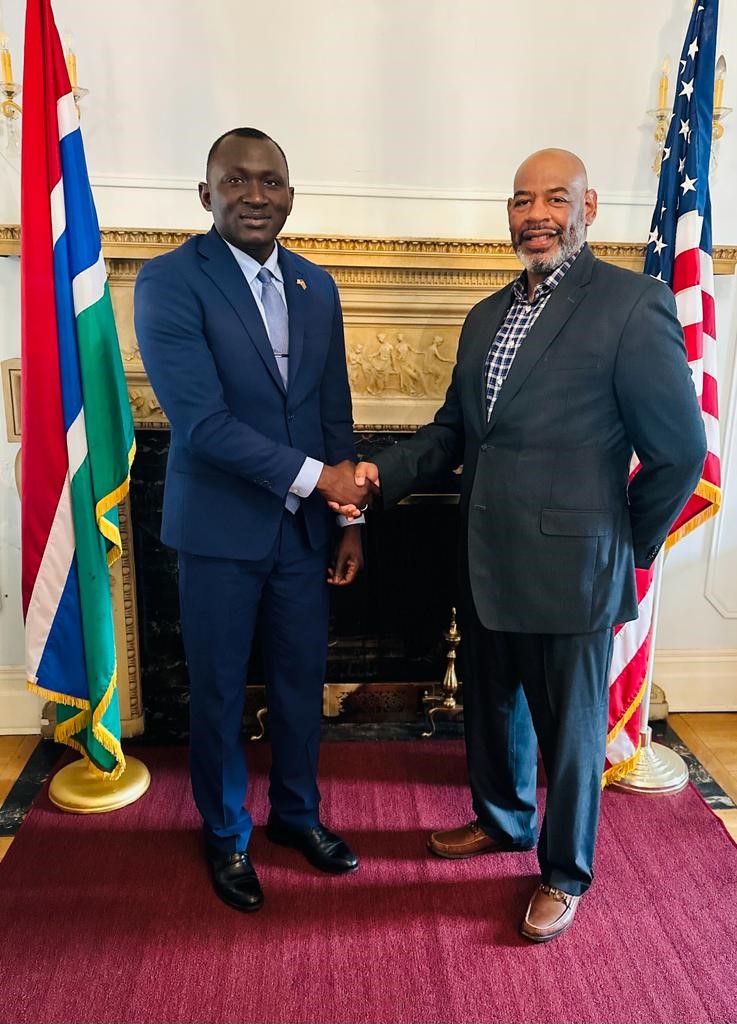By Mustapha S Koli, URR
Women’s Bureau, under the Ministry of Women, Children and Social Welfare, with funding from the UNICEF, on Thursday 28th November, 2019, concluded a Two day Information Sharing Seminar, with 50 Participants drawn from the Upper River Region including Women Leaders, Chiefs, Alkalolu and Youth Leaders at the Governors Bantaba in Basse, Upper River Region.
Mrs. Neneh Touray, The Director of Communication at the Bureau, in her opening statement, said that, the objective of the programme, is to share information with Regional Authorities, Members of the Technical Advisory Committee and other stakeholders, on the effects of Female Genital Mutilation, Child Marriage, violence against women as well as the punitive provisions with the Domestic and Sexual offences Act for perpetrators of Women and Children Rights violations in the country.
Mr.Samba Bah, The deputy governor of the Upper River Region, in his remarks, cited the harmful effects of some of our cultural and traditional practices and challenged participants to collectively collaborate to protect and safe children from all forms of violence within our society.
This, he said, can only be achieve through collective collaboration, cooperation, communication and harmonise coordination among the players in the child protection machinery as frontline actors to promote and protect Children’s Right in the country.
He added that, FGM/c has both short and long term term health complications which normally affect the psycho-social development of Women and Girls in our society.
“Withdrawing children from school, for the purpose of marriage, grossly contravenes the “Best Interest Principle” in child protection as this, amongst others, affects the holistic development of children and comprises their education and productivity society”. He emphasised.
Mr. Bah expresses happiness to be part of what he described, as a timely and important stakeholder’s forum in his region.
“Barely two weeks ago, a case of early marriage was reported to the governor office, and these to me, are rampant within our communities and therefore, it is everybody’s responsibility, particularly the parents to ensure that, force marriage, withdrawal of the girl-child from school for the purpose of marriage, FGM and other women and Children Rights violations are discourage in our society”.
He finally challenges participants to be proactive in discouraging the practice of all forms of Gender Base Violence, particularly FGM in the region.
In his presentations, Mr. Lamin K Saidy, Child Protection Alliance (CPA) dilated on the children rights issues in the country.
He said that, children are vulnerable and as a result are exposed to some forms of violence including FGM/C, physical and humiliating punishment, rape, trafficking, and child abuse, among others.
He urged parents to have dialogue with their children, to raise their awareness on sensitive issues, that may affect their physical and psychological wellbeing, as well as to include them in the decision making processes particularly on issues that affects them and also give them the opportunity to express their concerns.
On the area of sexual and reproductive health rights, Mr. Saidy said that, our culture and tradition oriented us in such a way that we don’t want to discuss these issues with children.
This he added, are part and parcel of human development and therefore the need to sensitise our children to understand their biological and physiological growth and development.
Mrs.Amie Jagne, A participant and Women’s Programme Supervisor at the Department of Community Development, described the information sharing seminar as timely and relevant, citing the prevalence of Gender Base Violence case in Upper River Region.
She said that, building the capacity of Traditional Authorities, Members of the Technical Advisory Committees and Women Leaders will contribute to the promotion of behaviour change campaign (BCC) to gradually reducing or ending the menace of Gender Base Violence in the region.
The activity was characterised by presentation, visual aid displays, contributions and recommendations were formulated by participants.




